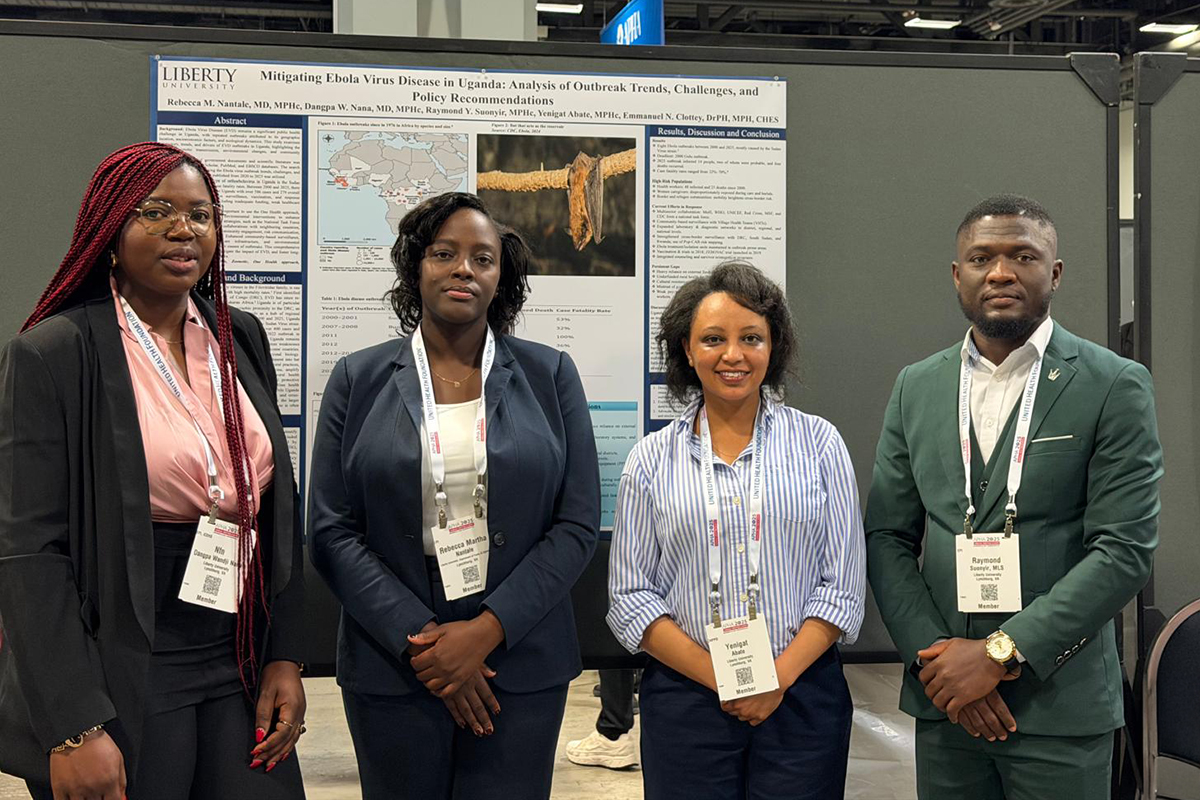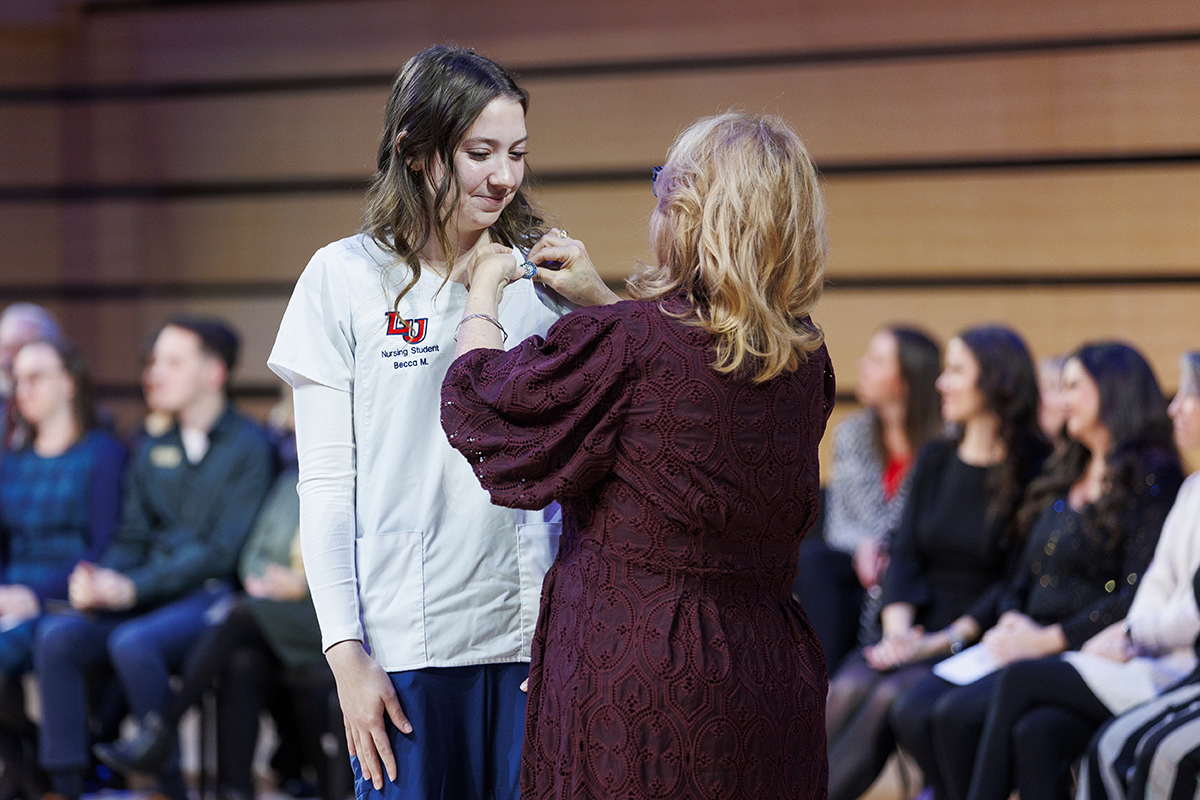Theatre Arts professors stage creative methods to study online during COVID-19 pandemic
April 20, 2020 : By Ryan Klinker - Liberty University News Service
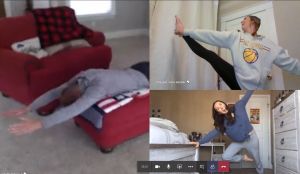
Even when they have had to use a living room as a dance studio and created set designs and costumes to be shown on a digital screen instead of a stage, students and staff in Liberty University’s Department of Theatre Arts have made the transition to online education with the creativity and collaboration that characterizes their art form.
As the teacher of five different dance courses, all of which would normally be held in large studio space in Green Hall, Assistant Professor Aubri Siebert usually conducts her classes in a very collaborative and open atmosphere. With the shift to online classes due to COVID-19 guidelines, Siebert’s students have created dance spaces in their own homes, in bedrooms, basements, and backyards.
“As I teach through video chat formats, I have my dancers dance along with me and I stop often to view their progress and give one-on-one feedback,” Siebert said. “I also have created assignments where my students turn in video recordings of their movement. This allows me to check in on each student individually and offer them ideas of how to strengthen their performance.”
Siebert has encouraged her students to use elements of their home environment to practice and perform their work.
“I have challenged them to find spaces in their home that offer interesting choreographic challenges — in the hallway, on stairs, in closets — spaces we do not have available to us in the classroom,” Siebert said. “This offers the students an entirely new set of experiences as they learn how to incorporate set pieces (couches, tables, etc.) and prop work into their choreography, something seen often in musical theatre work.”
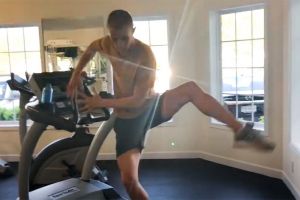
Senior Maddy Rasmusson is currently taking three courses taught by Siebert, and she said that even though the learning process is now being done digitally rather than in person, the class remains upbeat.
“(Siebert) has done a fantastic job at keeping the supportive, energetic atmosphere of the class exactly the same,” Rasmusson said. “I would say the biggest difference is that we are dancing completely by ourselves and picking up choreography can be more challenging since we are looking at a computer screen. It gives us the opportunity to think outside of the box, which is vital to our growth as artists.”
Associate Professor Barry Gawinski’s Introduction to Theatrical Design course lays the foundation for students to learn more about costuming, lighting, sound, and scene design by reading classic plays and interpreting the story, and the class typically makes visits to the department’s two stages and various shops.
“There is only so much that we can gain from a textbook, lecture or video, before we need to put our hands to work and figure things out and get it into our muscle memory,” Gawinski said. “Our art is something that is meant to be looked at in person, studied, and marveled at. This transition and learning style aren’t perfect, but it has made opportunities for some real outside-the-box thinking in the hopes of giving the students the best possible completion of this semester’s courses.”
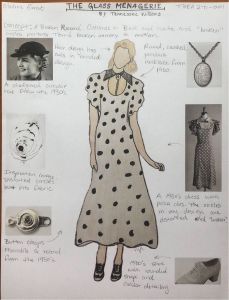
With the change to online instruction, Gawinski cited the example of an assignment he calls “Stage-in-a-Box,” in which students create designs and miniature stage settings with lighting.
Students now send in scans or photos of their designs from home, and senior Melanie Ernst said the transition to online has given her the best experience possible under the circumstances.
“Even though it would be preferable to be taking this class in person, I do not think that we could have made a better transition to the online learning format,” Ernst said. “The structural integrity of the class has remained and my learning has not been hindered or stunted in any way because of the transition.”
As is the case with all of Liberty’s other academic departments moving to online, Theatre Arts classes have utilized Microsoft Teams meetings and digital messaging to allow students and professors to communicate.
Gawinski and Siebert are thankful for the technology that enables them to stay connected to their students.
“We all understand this is a tough position to be in, and it is not a perfect mode of delivery … but we are not cut off from one another, and we still have community,” Gawinski said. “This situation was no surprise to God, and we can lean into Him as we continue through the semester.”
“It has been such a blessing to continue these classes online,” Siebert added. “I am grateful that the community of these classes can continue, that we are still challenged to be creative and (dance) every week. I have also loved being able to check in and pray for my students as they deal with everything happening in the world around them.”
